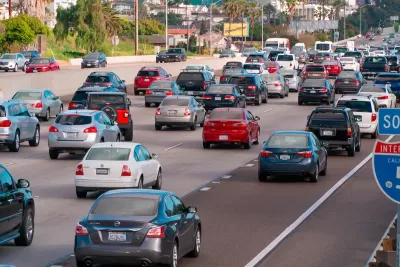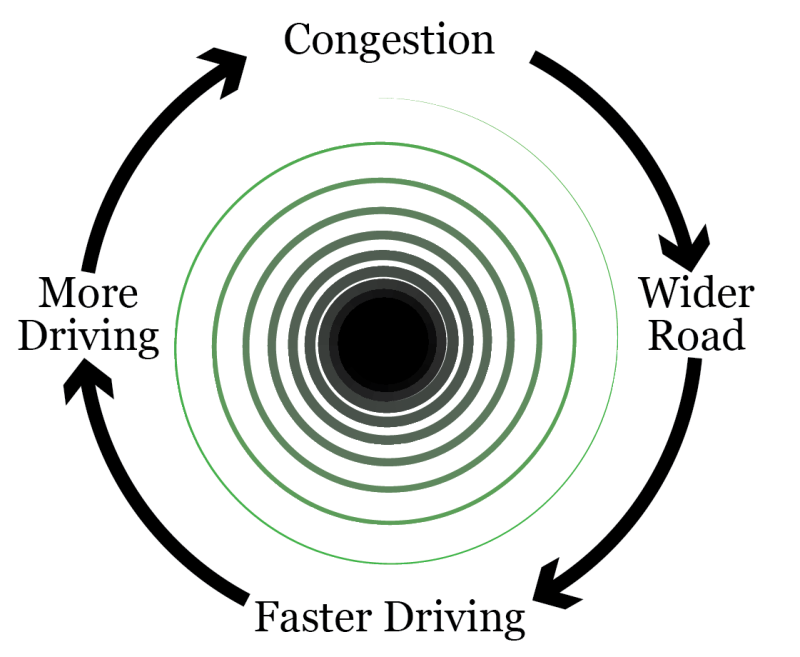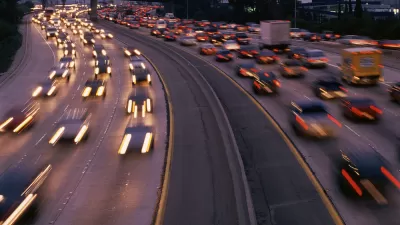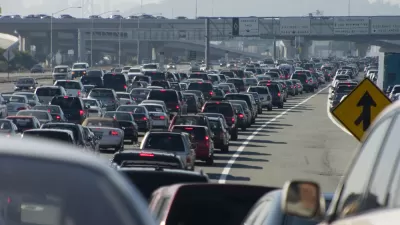Despite abundant research showing that roadway expansions provide limited congestion relief and increase long-term traffic problems, they still occur due to wishful thinking: advocates claim that “this” project is different.

“Why traffic never gets better,” by David Edmondson is a good discussion of induced vehicle traffic (the additional vehicle travel that results when roadways are expanded), and therefore the futility of using roadway expansions to reduce traffic congestion. “Congestion always wins,” he concludes.

The Fundamental Law of Traffic Congestion states that unpriced roads will always remain congested due to the phenomenon of induced demand. Induced demand is caused by people driving more, additional truck traffic, additional migration, and people switching onto the widened road. These are all economically beneficial, but the benefits of road widening are because congestion returns to the same level, not because congestion is mitigated.
Roadway widening still occurs because of wishful thinking: either that “this” project will be different, or that the short-term benefits will be worthwhile. Matthew Turner, one of the authors of the 2009 study, put it succinctly in a New York Times story last year.
“If you keep adding lanes because you want to reduce traffic congestion, you have to be really determined not to learn from history,” Turner said.
FULL STORY: Why traffic never gets better

Maui's Vacation Rental Debate Turns Ugly
Verbal attacks, misinformation campaigns and fistfights plague a high-stakes debate to convert thousands of vacation rentals into long-term housing.

Planetizen Federal Action Tracker
A weekly monitor of how Trump’s orders and actions are impacting planners and planning in America.

In Urban Planning, AI Prompting Could be the New Design Thinking
Creativity has long been key to great urban design. What if we see AI as our new creative partner?

Cal Fire Chatbot Fails to Answer Basic Questions
An AI chatbot designed to provide information about wildfires can’t answer questions about evacuation orders, among other problems.

What Happens if Trump Kills Section 8?
The Trump admin aims to slash federal rental aid by nearly half and shift distribution to states. Experts warn this could spike homelessness and destabilize communities nationwide.

Sean Duffy Targets Rainbow Crosswalks in Road Safety Efforts
Despite evidence that colorful crosswalks actually improve intersection safety — and the lack of almost any crosswalks at all on the nation’s most dangerous arterial roads — U.S. Transportation Secretary Duffy is calling on states to remove them.
Urban Design for Planners 1: Software Tools
This six-course series explores essential urban design concepts using open source software and equips planners with the tools they need to participate fully in the urban design process.
Planning for Universal Design
Learn the tools for implementing Universal Design in planning regulations.
Appalachian Highlands Housing Partners
Gallatin County Department of Planning & Community Development
Heyer Gruel & Associates PA
Mpact (founded as Rail~Volution)
City of Camden Redevelopment Agency
City of Astoria
City of Portland
City of Laramie





























